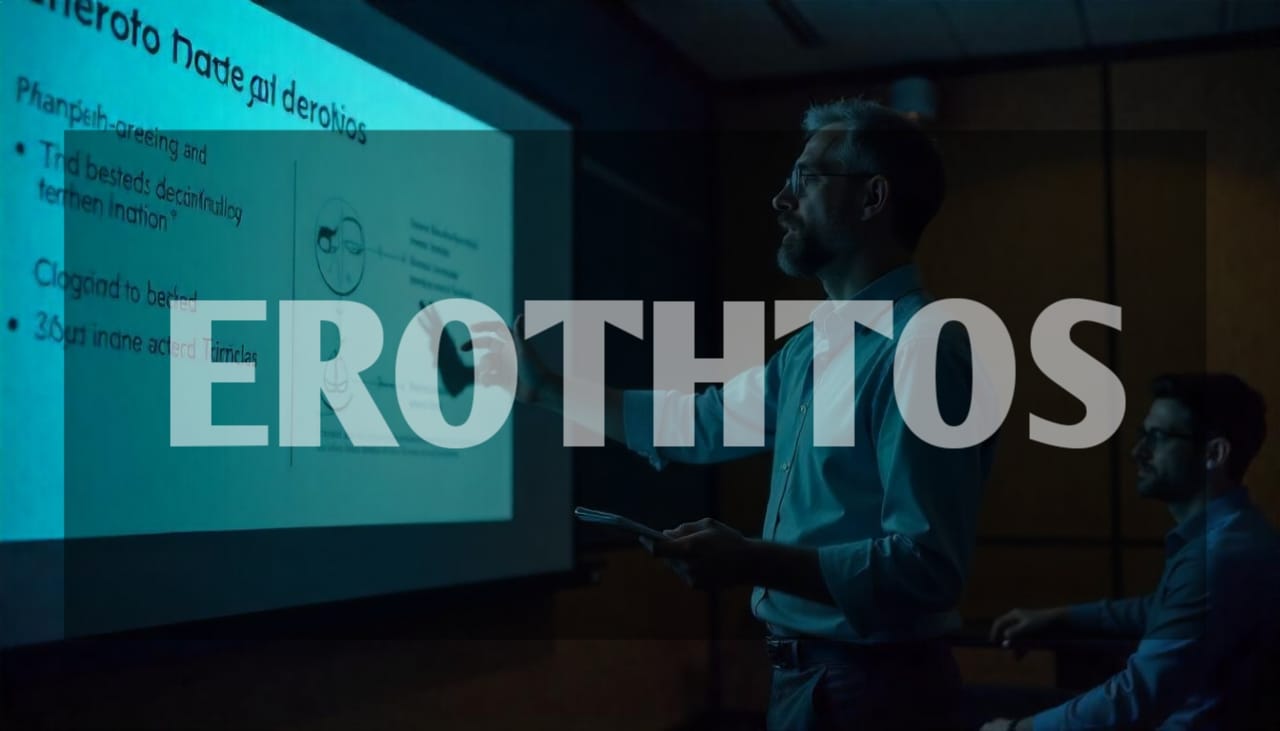In the realm of contemporary language and digital culture, new words and concepts often emerge that capture the imagination of niche communities or even spark widespread interest. One such intriguing term that has surfaced is “Erothtos.” While not yet formally recognized in dictionaries or mainstream usage, “Erothtos” is gaining traction in specific online circles and creative spaces. But what exactly does it mean, and why is it drawing attention?
What is Erothtos?
At first glance, Erothtos appears to be a fusion of classical and modern linguistic elements. It evokes connotations of mystery, intimacy, and perhaps even mythology. Some users online speculate that “Erothtos” might be a reimagining or reinterpretation of the Greek word “Eros”—the god of love and desire—or a poetic twist on “eros” itself, symbolizing passionate love.
However, without a fixed definition, “Erothtos” remains open to interpretation. In various online contexts, it has been described as:
- A conceptual state blending emotional depth, aesthetic beauty, and longing.
- A fictional or mythological realm tied to romance, introspection, and self-discovery.
- A creative project or artistic brand associated with writing, photography, or digital art.
- A username or alias adopted by artists, storytellers, or influencers seeking a distinctive identity.
Cultural and Aesthetic Implications
One reason Erothtos has piqued interest is due to its aesthetic appeal. The term has an almost dreamlike quality to it—fitting seamlessly into movements like dark academia, romanticism, or mythpunk. It suggests a mood more than a meaning: something that is felt rather than easily defined.
Much like how terms such as “sonder” or “sehnsucht” have captured emotional experiences that lack concise English equivalents, “Erothtos” could represent a deep yearning—a desire for beauty, connection, or spiritual intimacy.
Possible Origins
While there is no confirmed origin, several theories exist:
- Invented Word: It may be a neologism created by a writer or artist, designed to evoke an emotional or aesthetic resonance.
- Mythological Inspiration: As mentioned, its structure is reminiscent of Greek, possibly borrowing from “Eros” or “Thanatos” (death), hinting at a love-death duality.
- Brand or Pseudonym: Erothtos may also be tied to a brand name, pseudonymous persona, or multimedia project that gained online traction.
Erothtos in Creative Spaces
Writers, poets, and visual artists have begun using Erothtos as a source of thematic inspiration. In this context, it represents:
- A state of emotional vulnerability and sensual awareness.
- The intersection of love, loss, and art.
- A narrative tool for exploring mythic or existential themes in fiction.
On platforms like Tumblr, Pinterest, and emerging subreddits, the term often accompanies mood boards or quotes that reflect romantic melancholy, ephemeral beauty, and existential yearning.
Conclusion
Though still shrouded in ambiguity, Erothtos has the makings of a modern myth—a word that invites personal interpretation and artistic exploration. Whether it’s a poetic invention, a coded expression of emotion, or the seed of a larger cultural movement, its allure lies in its mystery.
As language evolves with digital and creative communities, Erothtos could well become a touchstone for those seeking to articulate the intangible and the profound.
FAQs about Erothtos
Q: Is Erothtos a real word?
A: While not found in standard dictionaries, Erothtos is an emerging term used in artistic and online circles.
Q: What does Erothtos mean?
A: It has no fixed definition but is often associated with romantic longing, mystery, and aesthetic expression.
Q: Is Erothtos based on Greek mythology?
A: Possibly. The name seems to draw inspiration from Greek terms like “Eros” and “Thanatos.”
Q: Where is Erothtos used?
A: In online communities, art platforms, and as a creative alias or theme in storytelling.
Q: Can I use Erothtos in writing or branding?
A: Yes. Its open-ended nature makes it ideal for use in poetry, branding, or as a character name.

